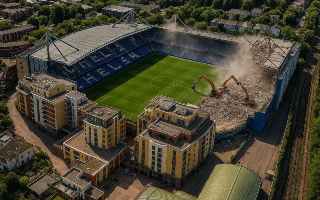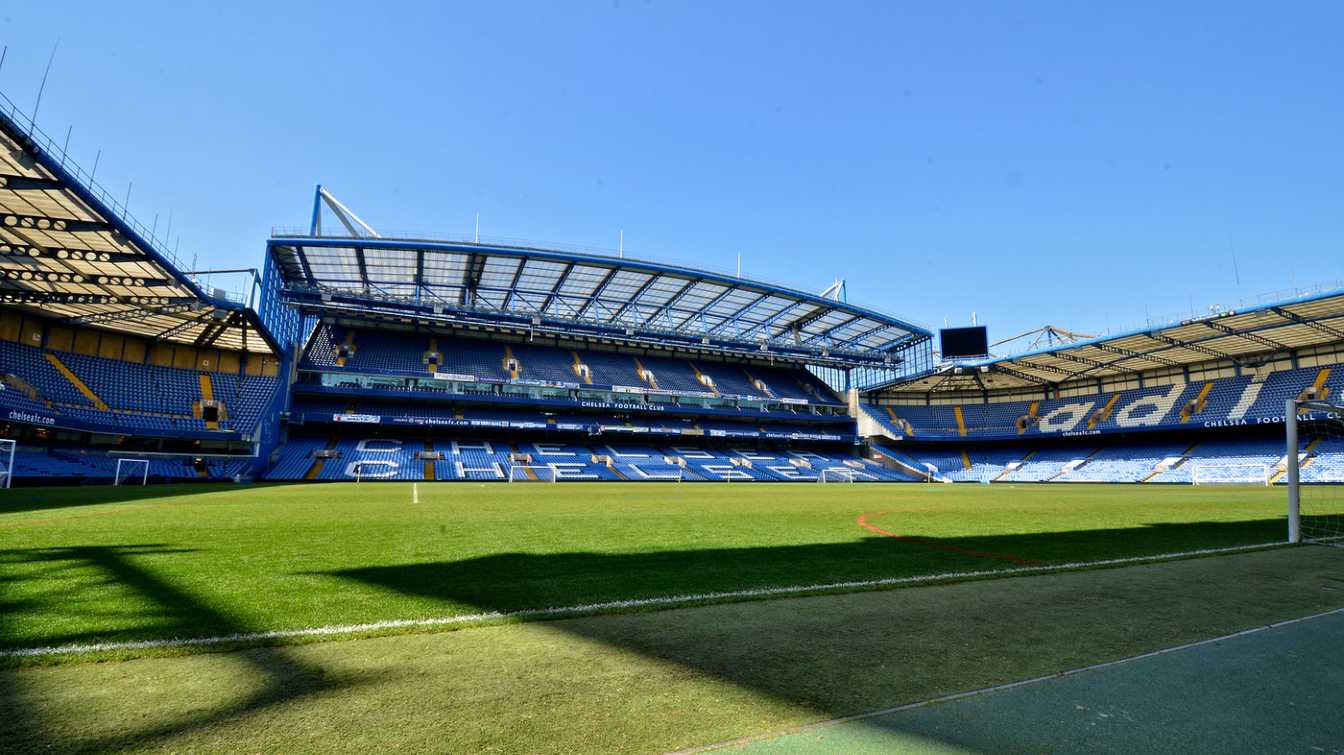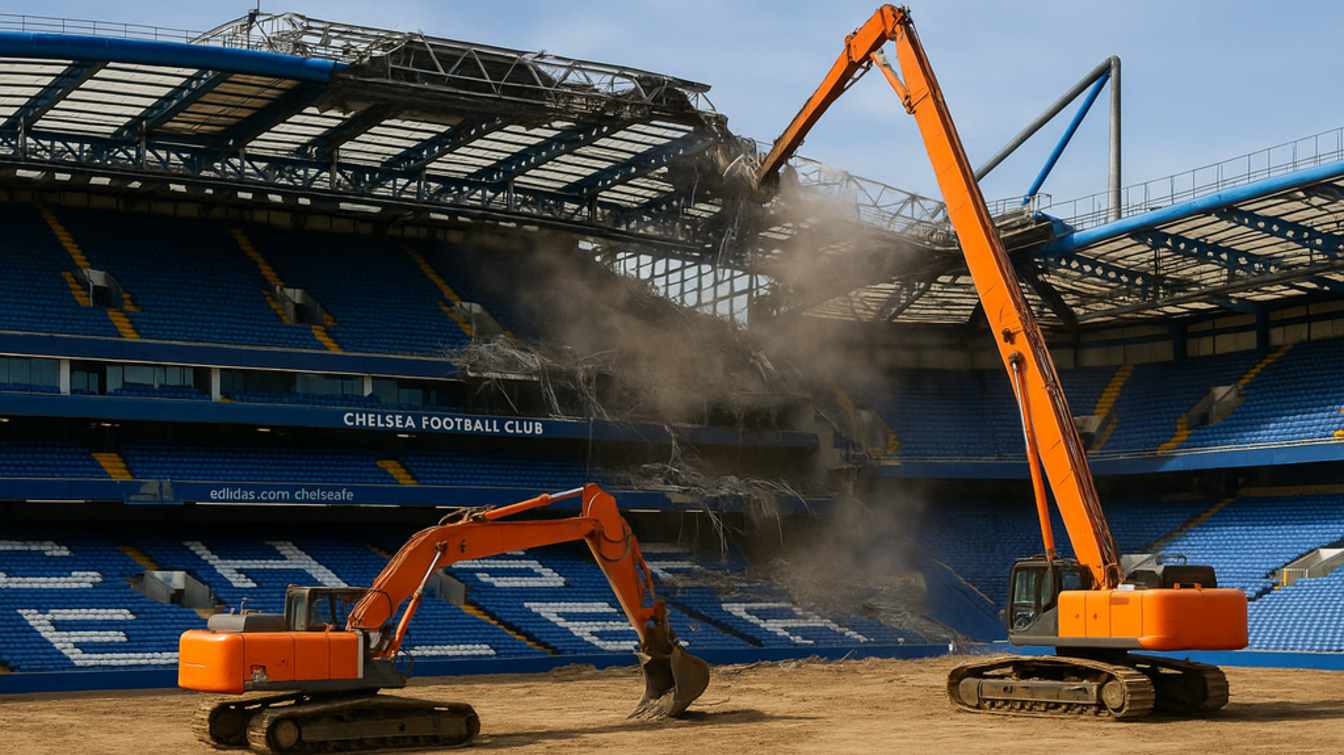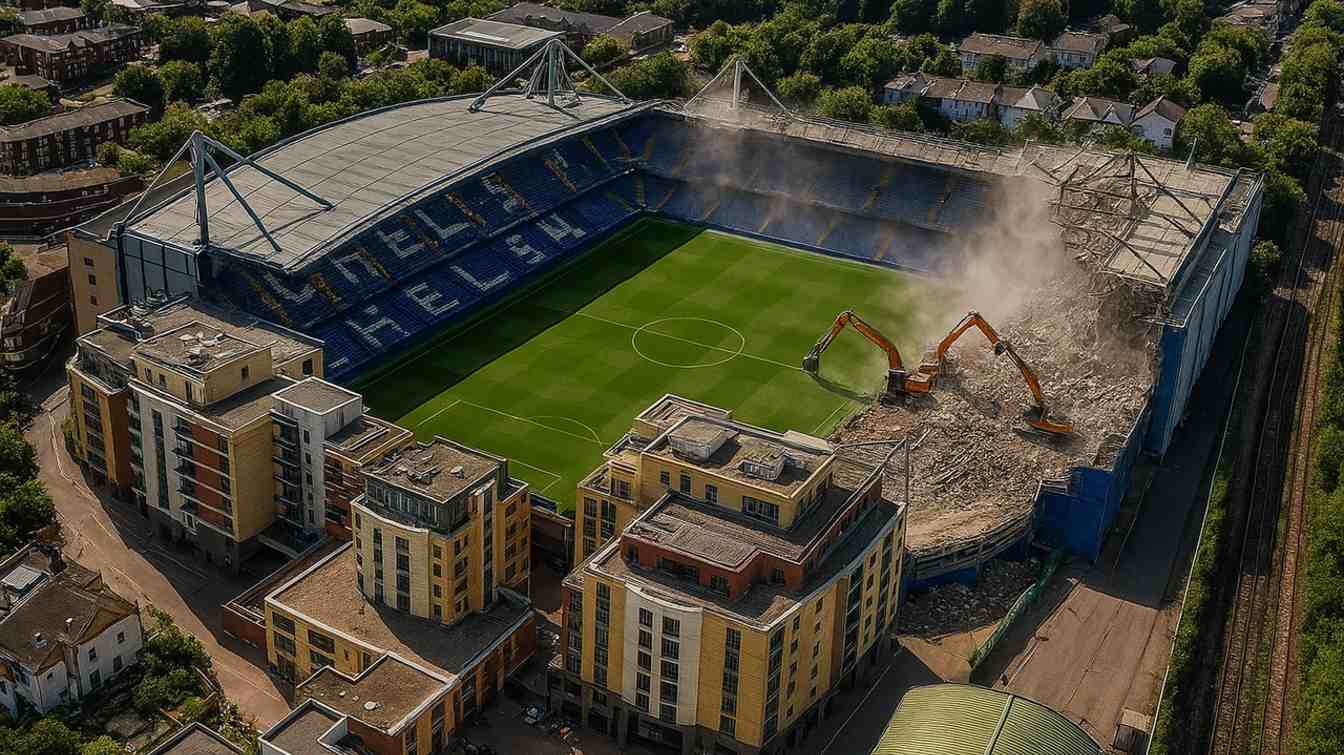England: New stadium for Chelsea not until 2040?
source: StadiumDB.com; author: Paulina Skóra
 Chelsea co-owner Hansjörg Wyss has spoken publicly for the first time about the club's stadium plans since the Clearlake Capital–Todd Boehly consortium took over.
Chelsea co-owner Hansjörg Wyss has spoken publicly for the first time about the club's stadium plans since the Clearlake Capital–Todd Boehly consortium took over.
Advertisement
"The best possible option"
After the match against Liverpool, the Swiss billionaire was asked by Chelsea Fan TV about the future of Stamford Bridge. Chelsea lags behind its rivals in matchday revenue, and the club has yet to make a final decision on whether to redevelop Stamford Bridge or build a new stadium elsewhere. Both options present challenges – a lack of nearby land and the need for Chelsea Pitch Owners (CPO) approval are major hurdles.
Wyss admitted that a site in Earl's Court would be the best possible option,
but there is currently no project leader. Club president and COO Jason Gannon is overseeing stadium planning, but no formal proposal has yet been submitted to the CPO. Progress also appears stalled due to divisions within the club's board. Boehly previously told Bloomberg that boardroom disagreements on the stadium's future could impact his collaboration with fellow co-owner Behdad Eghbali.
 © Brent Flanders (cc: by-nc-nd)
© Brent Flanders (cc: by-nc-nd)
How long will Chelsea wait?
Boehly stated that everything is fine and stable
at the club and that discussions about the stadium's future will take place after the season ends, with Chelsea still competing for the UEFA Conference League title and a potential Champions League spot through domestic performance.
This is a matter of years before anything is realized. When we originally bought the club, we agreed we had 15 to 20 years to solve this issue, but it's a huge project in a really interesting city like London, where many stakeholders have a voice,
Boehly said.
Demolishing Stamford Bridge: pros and cons
Demolishing Stamford Bridge would be a massive undertaking, requiring consideration of technical, legal, and social factors. It's important to note that Stamford Bridge is not formally owned by Chelsea FC. The lease rights, stadium name, and land are owned by the Chelsea Pitch Owners (CPO), an organization created to prevent the club from being sold or relocated without fan approval. Any decision to demolish and rebuild would require a qualified majority vote from the CPO. This same mechanism blocked the 2011 proposal to relocate Chelsea to Battersea under Roman Abramovich.
 Visualization of the demolition of Stamford Bridge.
Visualization of the demolition of Stamford Bridge.
The location of Stamford Bridge is another major challenge. The stadium is in a densely populated Fulham neighborhood, surrounded by housing, roads, and railway infrastructure. This makes logistics difficult – transporting heavy machinery, removing debris, and constructing a new stadium would require a carefully coordinated plan to minimize noise, disruption, and community impact.
Another issue is the need for a temporary stadium during the construction phase, which could last three to four years. Chelsea might have to play home matches at Wembley, Twickenham, or the London Stadium during this time. Such a move could affect the home atmosphere and present logistical challenges for fans and the club.
Regulatory and environmental concerns must also be addressed. Any major construction in London must comply with strict planning and environmental regulations. This would involve obtaining numerous permits, conducting public consultations, and completing environmental impact assessments, potentially prolonging the project timeline.
 Visualization of the demolition of Stamford Bridge.
Visualization of the demolition of Stamford Bridge.
The demolition itself would be complex. Due to the stadium's proximity to homes and railways, explosives would likely be ruled out. Instead, the structure would need to be dismantled in stages using heavy equipment and specialized machinery, increasing both cost and duration. The entire project could exceed £1.5 billion. The club would need to secure financing through naming rights, bond issuance, or commercial partnerships.
Finally, there are sporting and commercial pressures. Chelsea would lose some matchday revenue during the construction period, potentially impacting its transfer budget and competitive standing.
Stamford Bridge is not the only stadium that will likely be demolished in the not-so-distant future. If you want to find out which other venues are set to be taken down soon, be sure to watch our video.
Advertisement
 StadiumDB
StadiumDB